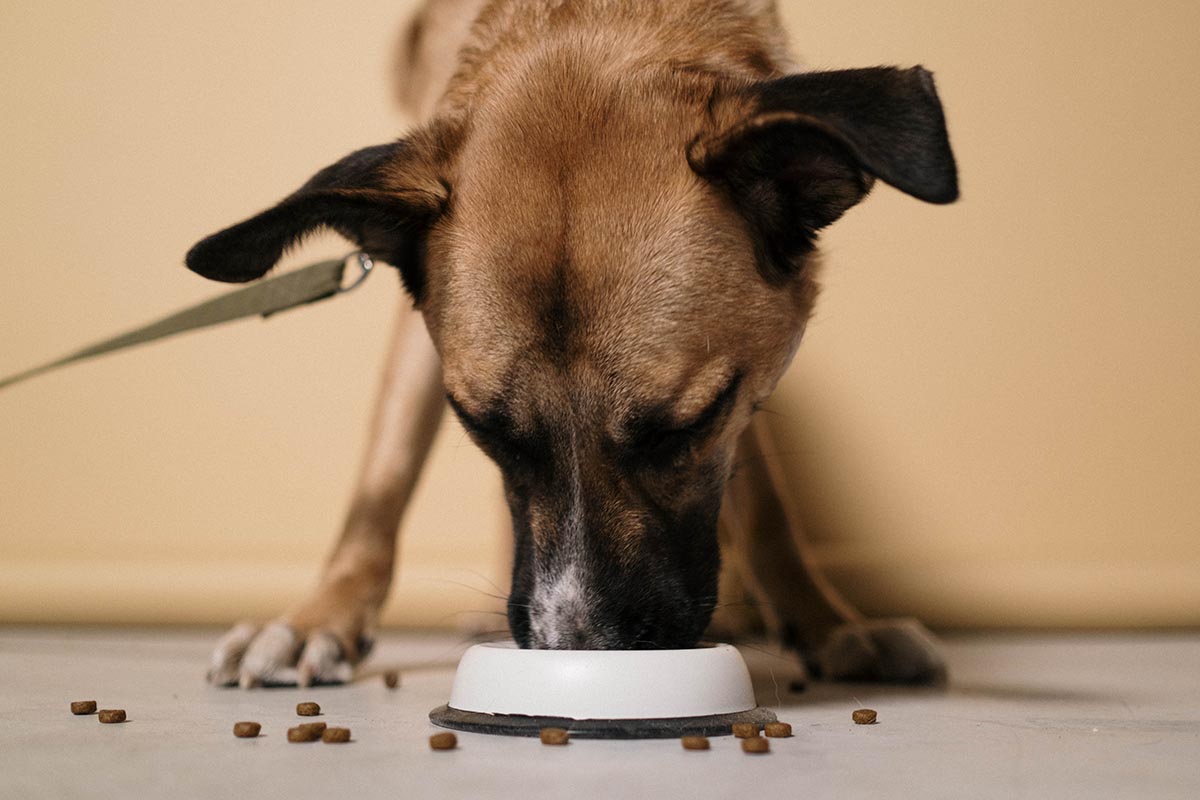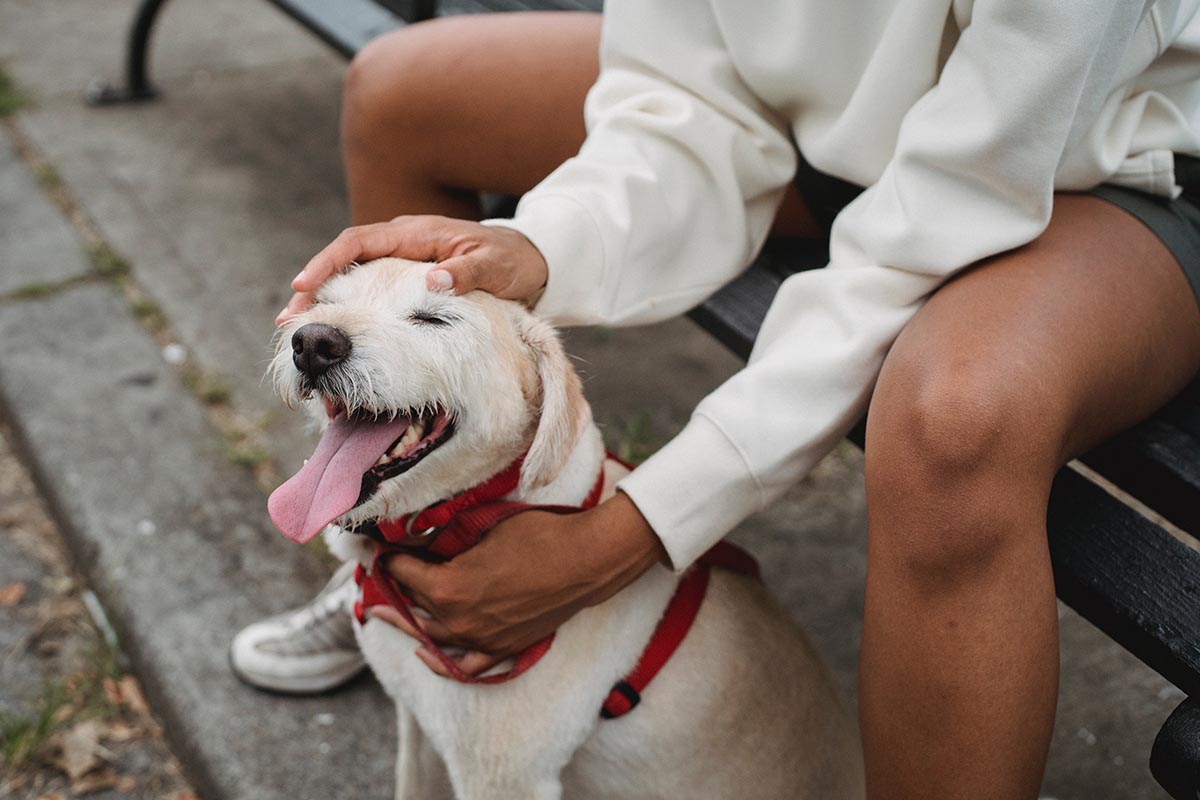6 Food Allergy Symptoms in Your Dog
We all want our dogs to be healthy, fit, and fine. For that, we make sure to feed them a variety of nutritious food items. However, just like humans, dogs can have allergies to certain types of food. Eating food that they are allergic to can lead to harmful consequences. For example, it can cause itching, inflammation, vomiting, diarrhea, sneezing, weight loss, and even aggression.
Sadly, dog allergies are hard to identify. Most owners find out about an allergy after it’s too late. Thus, it is important to feed your dog hypoallergenic dog treats that is also high in nutrition right from the beginning.
For example, you can feed them the best dog food for allergies like cricket dog food, insect dog food, and Asian carp, which are not only good for dog gut health but are also the best dog food for allergies. Here are some food allergy symptoms in dogs that will help you identify whether your dog is suffering from any food allergy.
6 Symptoms That Your Dog Is Suffering From a Food Allergy
Chronic Ear Infections
This is a major tell-tale sign that your dog is suffering from a food allergy. Your dog might have stinky, yeasty ears filled with black or brown build-up. You might see your dog shaking and scratching its infected ear way too often.
Dogs often face ear infections throughout their lives. Thus, identifying food allergies using the ear infection yardstick is difficult. There can be other causes of ear infections, such as yeast infections, ear mites, and swimmers’ ears. You will need to rule these out first to determine that your dog indeed has a food allergy that is causing the ear infection.
Then, you will need to try a food elimination diet or food allergy test to determine the culprit.
Bronzing Around the Lips
You will notice your dog’s lips appear dark pink and inflamed. This is usually accompanied by similar symptoms on their feet, skin, jowls, and toes. It causes severe and continuous itching. While a major cause of bronzing is a food allergy, there may be other causes behind the issue. This includes a yeast-based infection or even sunburn. Thus, rule out other causes and get the best dog food for allergies if you notice bronzing in your dogs.
Hair Loss
Dogs keep shedding their hair regularly. But, if you notice your dog’s hair falling out too often without any reason, it may be due to a food allergy.
Thus, keep track of their shedding cycle and intensity to identify or rule out the possibility of food allergies. You can also stop using shampoos or other products to check for any difference in their hair loss pattern.
Gastrointestinal Problems
This is one of the most prominent symptoms that your dog is suffering from a food allergy. Your dog will not be able to digest, absorb, or chew certain food items. Some of the noticeable symptoms of gastrointestinal problems are:
- Vomiting
- Diarrhea
- Lack of appetite
- Weight loss
- Abdominal pain
- Discomfort
- Flatulence
If you notice any of these symptoms, you need to take your dog immediately to a medical professional to check for food allergies.
Watery Eyes
If your dog has a food allergy, you will notice their eyes watering often. This causes staining and irritation, which can lead to them scratching their eyes frequently. This is also accompanied by a stuffy nose or goopy discharge.
However, you first need to rule out eye trauma as this too shows the same symptoms. It is advisable to visit an eye specialist first to ascertain the cause of the issue.
Itchy Skin
Reaction to allergic food items easily appears on the dog’s skin. This can lead to discomfort and cause continuous itching. Some of the common symptoms of itchy skin are restlessness, licking, redness, dull coat, scaling, and aggressiveness.
There can be other causes than food allergies for itchy skin, such as bacterial or yeast infection. Therefore, rule out the other possibilities first by having an in-depth skin check-up of your dog.
How to Treat Food Allergies in Your Dog?
Food allergies in dogs cannot be cured. It can only be treated by avoiding foods that your dog is allergic to. Some dogs might even require medication to recover from severe allergic reactions. Here is how you can treat food allergies in your dog.
First, you need to identify the food items to which your dog is allergic. You need to ensure that the diet doesn’t contain the identified food items at any cost.
Today, there are also hypoallergenic dog food items available that you can feed your dog without any worries. Some proven hypoallergenic food items that you can consider are:
- Black soldier flies
Black soldier flies are high in protein, nutrients, and fat content. They are also easily digestible for dogs. Several clinical studies using black soldier flies have shown promising results in pets with food allergies.
- Crickets
Crickets contain twice the protein as beef. They are also rich in vitamins, calcium, iron, and other essential nutrients. Cricket dog food has high hypoallergenic potential and is an excellent option to feed your dogs.
- Asian Carp
One of the best sustainable fish treats for dogs is the Asian Carp. Firstly, they are delicious, and dogs love to eat them. But more importantly, they don’t have any antibiotics or heavy metals as they do not eat other fish.
- Seaweed
Seaweed is one of the best sustainable dog foods. It is lean and rich in protein while being low on calories and fat.
- Juice pulp
Juice pulp is all-natural and full of fiber and nutrients. It has excellent hypoallergenic properties and is also suitable for dog gut health. However, we recommend that you first consult a veterinary doctor before you start with a hypoallergenic dog treats diet or other allergy-free dog food recipes.
Parting Thoughts
Food allergies in dogs are highly common. If you notice any of the food allergy symptoms mentioned above, you should seek professional medical help at the earliest. The doctor will carry out a proper diagnosis and suggest the appropriate treatment.
They will prescribe the best hypoallergenic food items that you can feed your dogs without any issues. Over time, you will find out what your dog can eat and what it cannot. Finally, you will be able to provide a diet that is not only free of allergic elements but also high in nutrition. Here’s to hoping that your dog lives a healthy life without any allergies and infections.






















